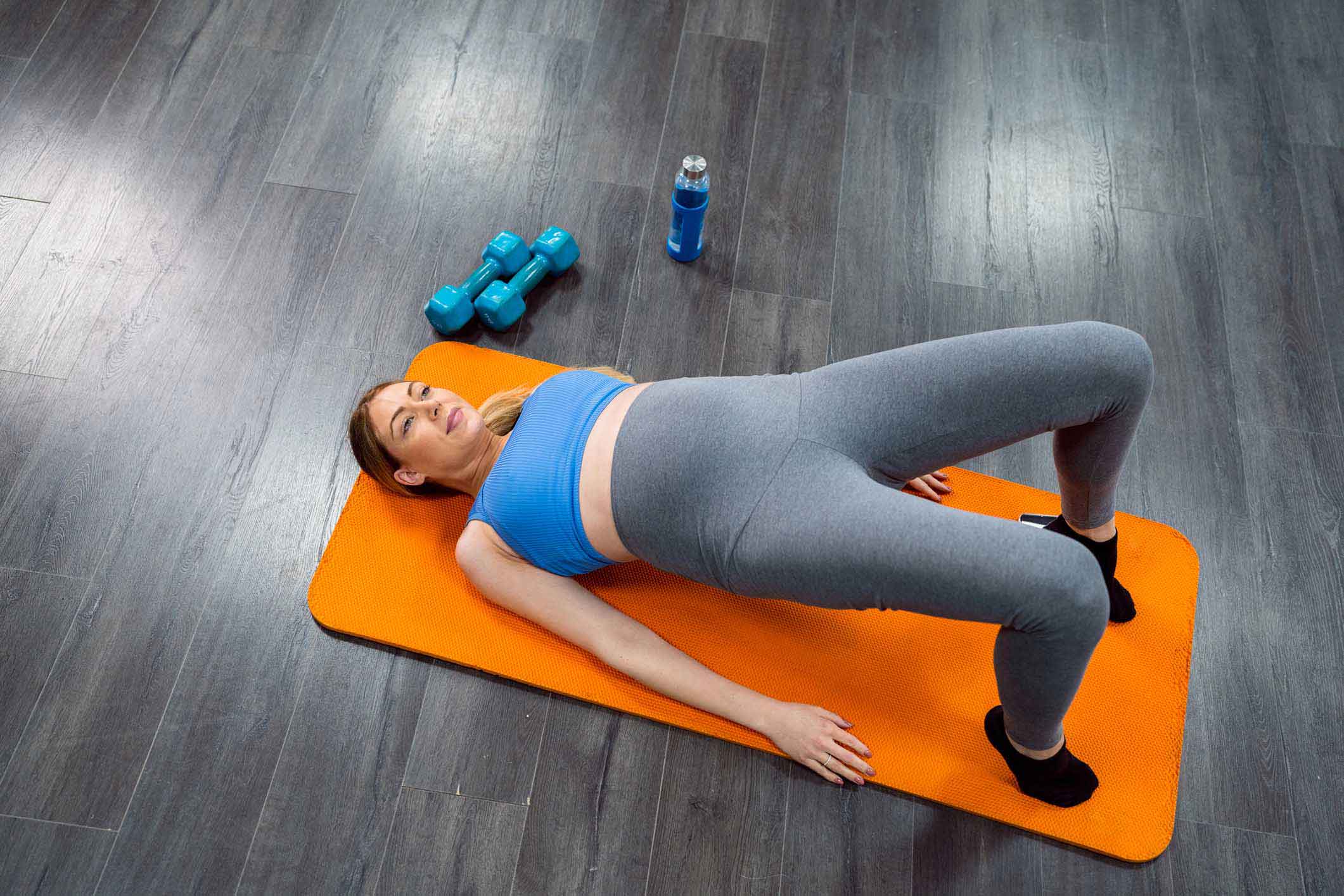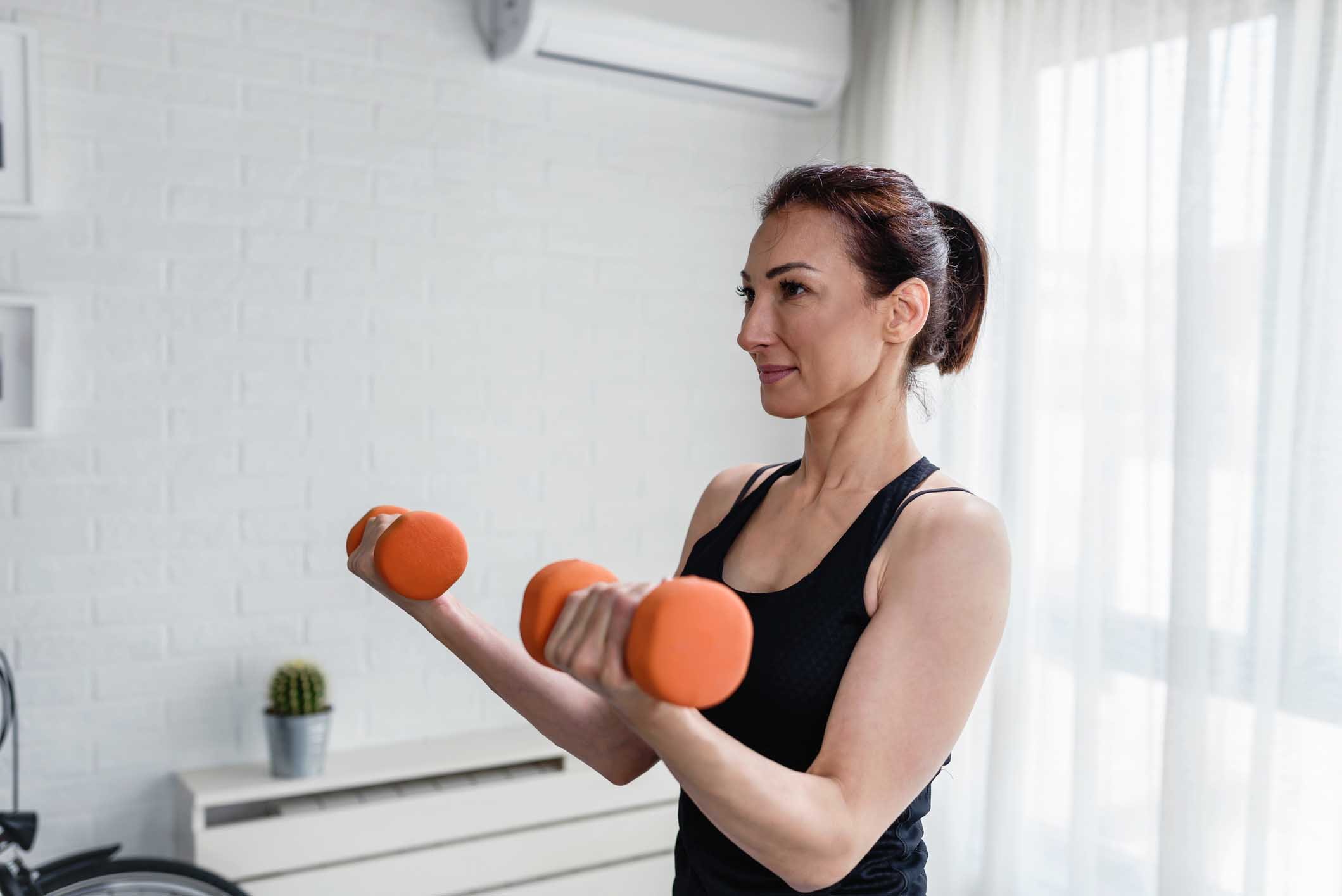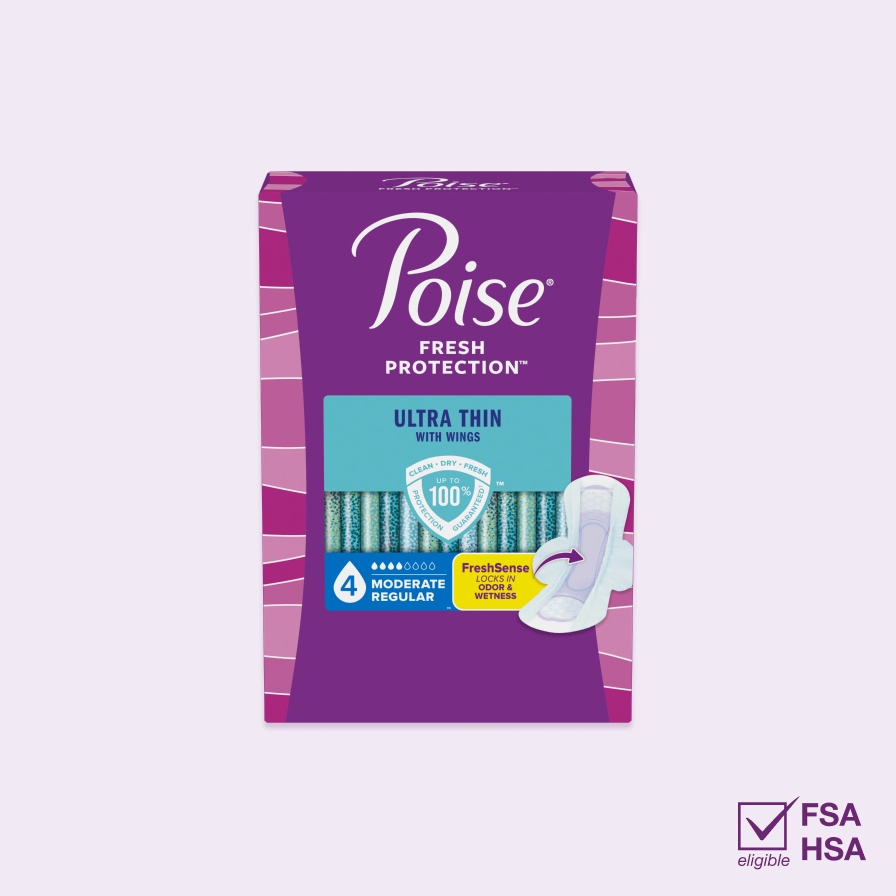Feeling the Menopause Energy Drain? Here's How to Get it Back!
Feeling the Menopause Energy Drain? Here's How to Get it Back!
These days, we seem to live in an energy-drain state. Blame the job, the family, the hectic social life, and, of course, the midlife hormone changes. Though you also have to answer these two questions: How are you eating? And are you exercising?
If you are going through perimenopause or menopause, you may be right to blame hormones for running low. Indeed, "lower estrogen levels can lead to a host of changes in brain function and behavior, including reduced levels of serotonin, dopamine and oxytocin neurotransmitters responsible for cognitive function and mood," says Maria Luque, PhD, MS, C6HES, in IDEA Fitness Journal.
The hot flashes, night sweats, mood swings, and age-related muscle loss and strength, without question, can drain anyone's mind and body. However, we know that proper nutrition and exercise has shown to be effective tools to fight off these menopause symptoms. You need to do both. If you don't eat right, you won't have the energy to exercise, and you cannot reap all the benefits of exercise without feeding your body the proper foods.
Food Swings Your morning breakfast consists of a bagel washed down with coffee, cream and sugar. You plow through a laundry list of tasks or tackle a work project that has you in front of the computer way into the night. Sleep? You will get around to it, though what will this lifestyle get you? A fast track to energy drain.
Here's why: Insulin hormone spikes due to the rapid sugar release from carbohydrates in the bagel. This flow of energy gives you a quick pick-me-up, followed by a sugar crash. Since you are fighting work stress, cortisol (the stress hormone) spikes. Everything gets worse when you cut back on sleep, as it throws off some metabolic hormones and makes you crave more sugar and fat. In the end, you re in an endless up and down cycle of energy.
This creates a clear picture of how your diet affects your energy levels, which may explain, in addition to your hormonal changes, why you often cannot find the energy to exercise a common reason for skipping workouts. But before you think a multi-vitamin will give back your energy, consider this:
How often do you eat? Some studies are contradictory ? advising either eating three regular meals or up to five small meals to maintain energy levels and keep weight in control. However, the majority of experts and studies point out you should not let more than four hours pass without having something. Wait longer and you will likely feel ravenous, which can make choosing the best foods more difficult. Likewise, your metabolism may slow to conserve energy because of the time between one meal and the next.
What foods do you eat? Make sure each meal has lean protein, such as chicken, fish, lean pork, skim milk, Greek yogurt, or vegetable protein sources like lentils and/or beans. Also, have good mono-saturated fats and/or poly-saturated fats, such as olive oil, canola oil, avocado, nuts and/or seeds, and fiber-rich carbohydrates like whole grain pasta, brown rice, quinoa, and amaranth. And don't forget plenty of produce veggies and fruits.
How are your portion sizes? Sometimes you can eat too much, even with the healthy stuff. Check the nutritional content of your food. Review how many calories it has per serving. Learn to visualize the right portion for protein, carbohydrates, and fat. For example, use the palm of your hand as a sample size for your protein, a tennis ball for carbohydrates, and a dice for fat.
What are you drinking? Most beverages have plenty of empty calories and sugar that set you up for a sugar crash soda, energy drinks, giant flavored coffees, etc. Make sure you drink plenty of water. Sometimes, energy drain can be confused with being thirsty. In a recent study, women who had the least water intake experienced fatigue, headaches and mood swings, compared to those who drank more water. A good rule to follow is to shoot for eleven 8-oz. cups per day for women, says Amanda Berhaupt-Glickstein MS, RD. However, keep in mind your daily water quota also includes food rich in water like fruits, veggies, and broth base soups.
Are you having breakfast? Studies show people who eat breakfast manage their weight better than those who skip this important meal. They also increase their focus and alertness. But not any breakfast will do. Avoid sugary cereal, as it will set you up for an energy crash later on. Instead, focus on whole grains, fiber, high carbohydrate, lean protein, healthy fats, and fruits. (Try quinoa instead of oatmeal, with skim milk, almonds, and berries.)
Increase vitamin B. "Among this group of vitamins, B-5 is considered the anti-stress vitamin because of its important adrenal role. While others like B-6 and folic acid are needed to the serotonin production the feel good neurotransmitter," says Lisa Guy, ND in the guidebook, Heal Yourself Essentials. "They also play a role in the fat and carbohydrates metabolism." Where to get them? Legumes, meat, poultry, eggs, milk, nuts, and leafy greens.
If you eat well, you have the energy to kick out the best workout ever not just once, but every day. Exercise itself is an energy driver. "By working continuously, the body creates endorphins, which increase the sense of well being in the brain. That change in brain chemistry has a stress-reduction and energy effect," says JoAnn Dahlkoetter, PhD, sports psychology expert and coach and author of Your Performing Edge (2012), www.drjoann.com.
And don't think you have to kill yourself to get the benefits. In fact, Luque says moderate rather than high intensity exercise has the most positive effect on mood stages and energy levels.
What is the best exercise? Anything that makes you continuously use your big muscles like those in legs walking, biking, dancing or elliptical. If time constraints are your excuse, studies show that 10-minute sessions, evenly spaced throughout the day, can offer the same, and in some cases, even more benefits than a single 30-minute workout.
Once you begin sweating, your body moves into a feel-good cycle. This is not only because of the immediate energy effect, but also because you prevent the decrease in body mass that results when you don't work out. The more you exercise, the stronger your muscles become, so you will have more energy to stay active throughout the day. Plus your brain's blood flow improves, which releases more feel-good hormones and surprise you have more energy to exercise.
Recommended Products
Absorbency Level
Absorbency Level















